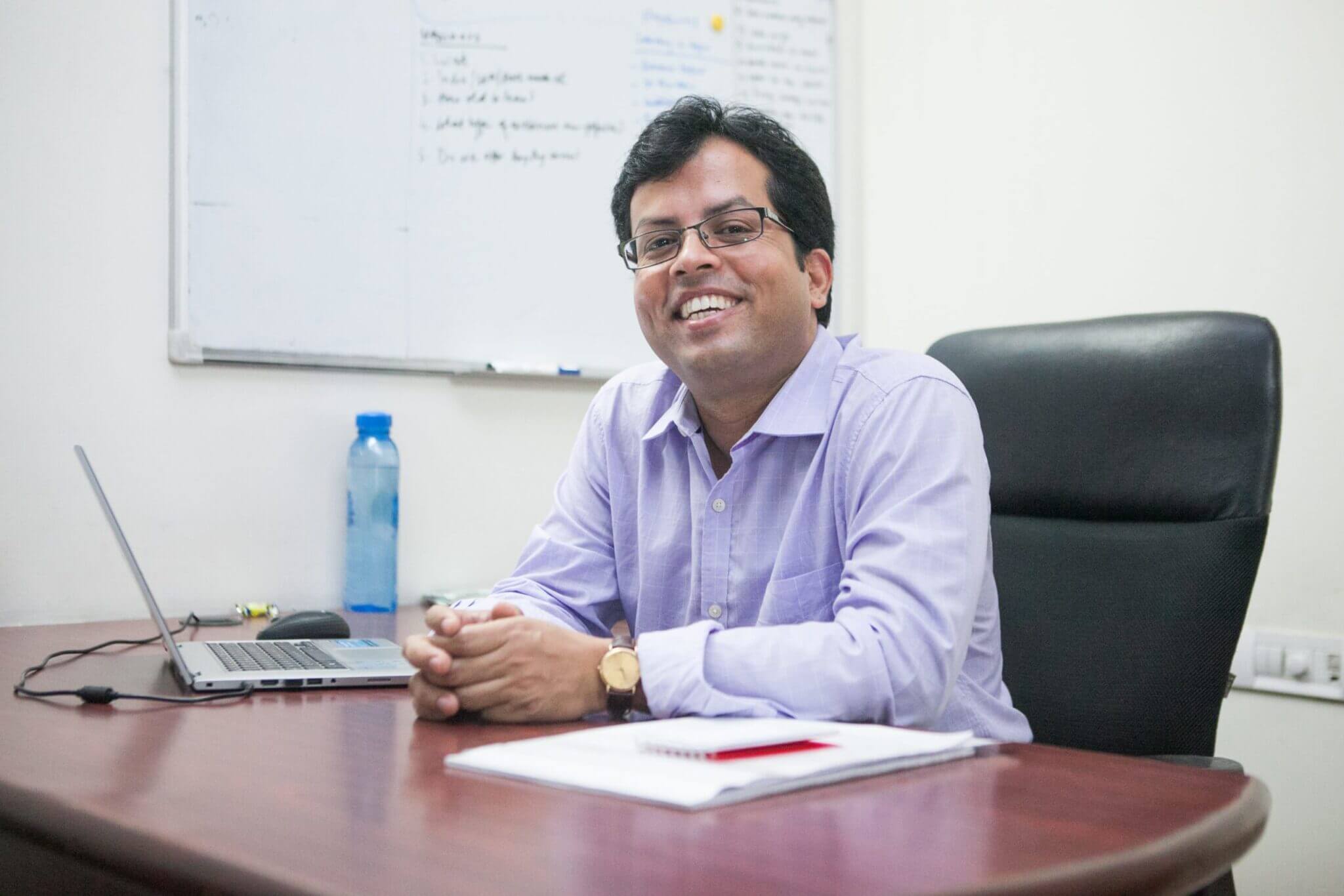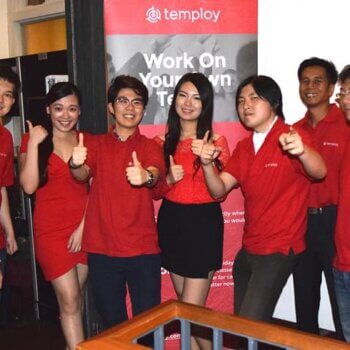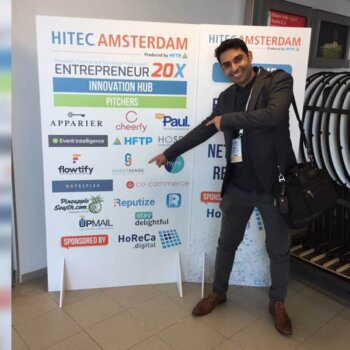Subrata Ghosh started Redstone Learning in US with an Indian offshore center in early 2014. Prior to Redstone, Subrata founded and ran an Ed-tech startup in India from 2007-2013, and it was recognised as the youngest company among the top 5 in ‘Project Management’ training in India in the year 2012. Before embarking on the entrepreneurial journey, Subrata spent over a decade in strategic technology roles at US companies like First Consulting Group, Itron Inc, and Nationwide Insurance.
He shares his story with The Asian Entrepreneur today.
In your own words what is Redstone Learning?
Redstone Learning Inc is a global Ed-tech company that is headquartered in New York with an offshore center in Bangalore. It provides an Online and On-demand Learning Platform for Organizations and Individuals – focused on business functions like Regulatory Compliance, Strategy and Operations, HR, Project and IT/Quality Management.
Redstone currently has over 300 empanelled experts across the globe. Professionals from companies including some of the world’s largest research organizations, the world’s largest payments platforms and the world’s largest pharma companies, among others, leverage Redstone Learning to keep themselves ahead of the curve.
Redstone has over 200+ business skilling courses and 30 professional certifications. It trains around over 10,000 people a year.
How did you come up with the idea of Redstone Learning?
We are living in an age of unprecedented change. Digitization, AI and globalization are disrupting the status quo at a rapid pace in every industry. If one looks at what is happening with Transportation (on-demand, electric, driver-less), Commerce (online, on-demand, personalized), Healthcare (AI assisted diagnosis), etc – the future is very uncertain, and yet full of opportunities for those who can adapt.
During my business exploration phase, I realized that there was a huge crisis building up for businesses and knowledge workers. Most professionals that I met across industry were concerned about the drastic changes in industry around them. They were worried that they would wake up one day and find themselves irrelevant. And most businesses, large and small, were worried about not having access to the right expertise to help them stay agile and ahead of the curve.
I felt what was needed was a platform for real-time, relevant expertise – through a combination of top-notch experts, high quality and constantly evolving learning content, and delivery formats that follow the learner. That is the only way that business and individuals can cope. That is the problem that Redstone Learning is solving.
Could you walk us through the process of starting up Redstone Learning?
Redstone Learning was incorporated in the US in late 2013 and started business operations in Jan 2014. The Indian offshore center was set up by taking over an existing domestic-focused professional learning company.
Did you encounter any particular difficulties during startup?
Being a first-generation entrepreneur, there are many mistakes made – however, we managed to stay focused and continued to learn from them.
How have you been developing Redstone Learning since startup?
Redstone started with online and on-demand courses for professional certifications, targeted at mid-career professionals in the US. After consolidating its position in this area and adding the top 10 most popular global certifications to its portfolio, Redstone Learning launched another vertical in the area of GRC courses (Governance, Risk Management and Compliance). In the latter, Redstone Learning has quickly scaled up to become one of the top 5 global players in this niche. Within a year, it has reached a size that has taken its competitors 10+ years to achieve.
What kind of feedback did you get for Redstone Learning so far?
Redstone has been able to achieve high customer ratings for its quality and price points. In parallel, it has been able to sign up over 300 US trainers in the areas of certifications and compliance, who serve as Redstone’s speaker panel. These trainers are experts with decades of experience, and they are at par with what established older US players have to offer.
Do you face a lot of competition in this industry?
Any business worth doing will have competition. However, Redstone has been able to leverage a globalized and digital model from the get go with the right experts sourced in US for our clients, while the marketing engine is run cost-effectively from India, and the courses are delivered online. Most US competitors are struggling to move from brick-n-mortar to a digital and global model and we have a significant lead in this model.
Have you developed any industry insights that you could share?
Globally, reskilling has become a more rapidly iterating process and online and on-demand delivery formats are catching on. However, the online experience will have to be richer since classroom is still a high value-addition play. Technology will play a key role and things like VR and Analytics will change how people learn in future.
In Asia, professional learning is beginning to see more investment and businesses and individuals are looking at it as key to their growth and success. The days of getting through one’s entire career with one set of skills is gone. Individuals will have to constantly stay ahead of the curve, and on-demand skilling will be key to this.
What is the future of the industry and how do you plan to stay relevant in this industry?
Real-time, relevant expertise through a combination of top-notch experts, high quality and constantly evolving content, with relevant delivery formats is the only way that business and individuals will cope. This is what Redstone Learning is focused on.
Our larger and long-term agenda is to be the one-stop platform for growth expertise – and we’re currently focusing on a few critical pieces of it.
We are already bringing expertise to professionals at cos like the world’s largest space research org, the world’s largest payments platform, the world’s largest pharma company among others. And the journey has just begun!
Were there anything that disappointed you initially?
We did would wish that developing markets adapted faster to changes that seemed obvious. However, we realised that the markets were not wrong, we had to be nimble and navigate smartly under tough circumstances.
What do you think about being an entrepreneur in Asia?
Within Asia, one has different countries that are at different stages of development. A place like Singapore is ranked as among the easiest places to do business, while India is far below in the list. We had the advantage of serving a mature market like the US, while leveraging the low cost offshore center in India.
Culture, society and economies have a significant impact on entrepreneurship in different geographies. Asian entrepreneurs rely much more on their families and personal networks for support and resources, than in the West. In India for example, small businesses have to struggle within a very tough regulatory and financial environment – and the long term vision gets sacrificed very early in order to survive.
What is your definition of success?
Success is, when you become the person you believe you were meant to be!
Why did you decide to become an entrepreneur?
During my working career across the globe, I met a lot of brilliant people with dreams and ideas but who were inhibited within the wrong environment. I realized that the only way to realize your vision is to go out there and create it yourself, and also create an environment to bring in others who share the same vision. This was only possible as an entrepreneur.
In your opinion, what are the keys to entrepreneurial success?
- The ability to separate noise from data
- The ability to inspire others and take them along
- The ability to persist despite challenges
Any parting words of wisdom for entrepreneurs out there from your personal experience?
Make your work relevant to the world, and good things will start happening.
Connect
http://www.redstonelearning.com/





























